Related Research Articles
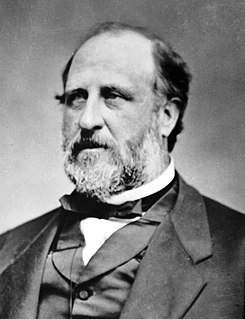
William Magear Tweed, often erroneously referred to as William "Marcy" Tweed, and widely known as "Boss" Tweed, was an American politician most notable for being the political boss of Tammany Hall, the Democratic Party's political machine that played a major role in the politics of 19th-century New York City and state. At the height of his influence, Tweed was the third-largest landowner in New York City, a director of the Erie Railroad, a director of the Tenth National Bank, a director of the New-York Printing Company, the proprietor of the Metropolitan Hotel, a significant stockholder in iron mines and gas companies, a board member of the Harlem Gas Light Company, a board member of the Third Avenue Railway Company, a board member of the Brooklyn Bridge Company, and the president of the Guardian Savings Bank.

Tammany Hall, also known as the Society of St. Tammany, the Sons of St. Tammany, or the Columbian Order, was a New York City political organization founded in 1786 and incorporated on May 12, 1789, as the Tammany Society. It became the main local political machine of the Democratic Party, and played a major role in controlling New York City and New York State politics and helping immigrants, most notably the Irish, rise in American politics from the 1790s to the 1960s. It typically controlled Democratic Party nominations and political patronage in Manhattan after the mayoral victory of Fernando Wood in 1854, and used its patronage resources to build a loyal, well-rewarded core of district and precinct leaders; after 1850 the vast majority were Irish Catholics due to mass immigration from Ireland during and after the Irish Famine.
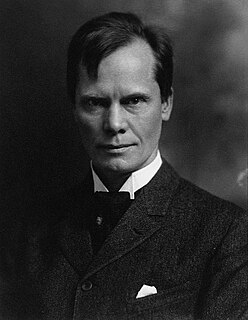
William Sulzer was an American lawyer and politician, nicknamed Plain Bill Sulzer. He was the 39th Governor of New York and a long-serving congressman from the same state.
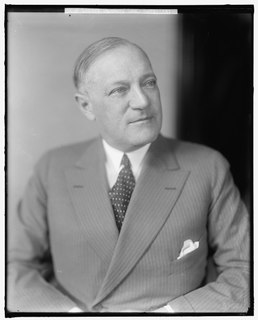
Robert Ferdinand Wagner I was an American politician. He was a Democratic U.S. Senator from New York from 1927 to 1949.

Charles Francis "Silent Charlie" Murphy, also known as Boss Murphy, was an American political figure. He was also the longest-serving head of New York City's Tammany Hall, a position he served from 1902 to 1924. Murphy was responsible for transforming Tammany Hall's image from one of corruption to respectability as well as extending Tammany Hall's political influence to the national level. Murphy would be responsible for the election of three mayors of New York City, three governors of New York State, and two U.S. senators, even though he was never listed as a leader of Tammany Hall.
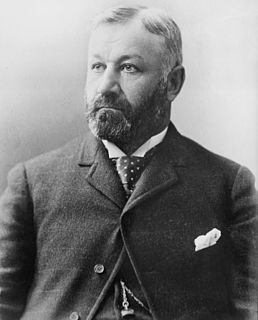
Richard Welstead Croker, known as "Boss Croker," was an Irish American political boss who was a leader of New York City's Tammany Hall. His control over the city was cemented with the 1897 election of Robert A. Van Wyck as the first Mayor of all five boroughs. During his tenure as Grand Sachem, Boss Croker garnered a reputation for corruption and ruthlessness and was frequently the subject of investigations. As his power waned following the 1900 and 1901 elections, Croker resigned his position and returned to Ireland, where he spent the rest of his life.

Thomas Francis Gilroy was the 89th mayor of New York City from 1893 to 1894.
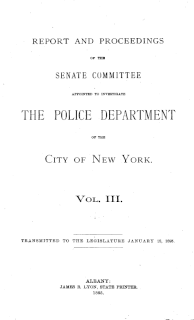
Lexow Committee was a major New York State Senate probe into police corruption in New York City. The Lexow Committee inquiry, which took its name from the committee's chairman, State Senator Clarence Lexow, was the widest-ranging of several such commissions empaneled during the 19th century. The testimony collected during its hearings ran to over 10,000 pages and the resultant scandal played a major part in the defeat of Tammany Hall in the elections of 1894 and the election of the reform administration of Mayor William L. Strong. The investigations were initiated by pressure from Charles Henry Parkhurst.
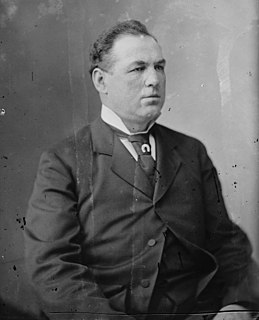
James O'Brien was a U.S. Representative from New York from 1879 to 1881.

Hugh John Grant served as the 88th mayor of New York City for two terms from 1889 to 1892. He remains the youngest mayor in the city's history, was one of the youngest mayors of a major American city, and was the second Roman Catholic mayor of New York City.
The Municipal Ownership League was an American third party formed in 1904 by controversial newspaper magnate and Congressman William Randolph Hearst for the purpose of contesting elections in New York City.

Thomas Coman was President of the New York City Board of Aldermen from 1868 to 1871, and Acting Mayor of New York for several weeks at the end of 1868 and beginning of 1869.

The 1917 New York City mayoral election replaced sitting mayor John P. Mitchel, a reform Democrat running on the Fusion Party ticket, with John F. Hylan, the regular Democrat supported by Tammany Hall and William Randolph Hearst.
John C. Jacobs was an American politician from New York.
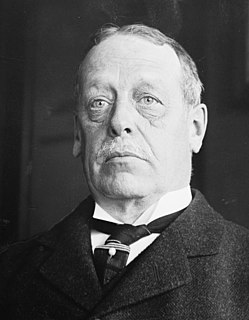
De Lancey Nicoll was a New York County District Attorney.
The Commissioner of Docks of the City of New York was the head of the Department of Docks created by New York State's 1870 revision of the city charter, which returned numerous powers to the city that had previously been taken by the state. This version of the city charter was known as the "Tweed Charter", after William M. Tweed, the main force behind it. He was widely known as "Boss Tweed", and controlled much of local New York City politics via the Tammany Hall political club. At the time the charter revision passed, he was a New York State Senator representing the Fourth District, in Manhattan.

Edward Morse Shepard was an American lawyer and politician from New York.

The 113th New York State Legislature, consisting of the New York State Senate and the New York State Assembly, met from January 7 to May 9, 1890, during the sixth year of David B. Hill's governorship, in Albany.

The United States Senate election of 1922 in New York was held on November 7, 1922. Incumbent Republican Senator William Calder ran for re-election to a second term, but was defeated by Democrat Royal Copeland.

The New York City mayoral election of 1933 took place on November 7, 1933 in New York City. Incumbent Democratic Mayor John P. O'Brien, who was elected in a special election after the resignation of Mayor Jimmy Walker, faced Republican Congressman and 1929 mayoral candidate Fiorello La Guardia, and former acting mayor and President of the New York City Board of Aldermen Joseph V. McKee, who became acting mayor after Walker's resignation until the special election, and ran on the Recovery Party line.
References
- ↑ New York Times: "Senator Fassett Smiles," April 27, 1890, accessed May 7, 2011
- ↑ Gustavus Myers, The History of Tammany Hall. 1917.